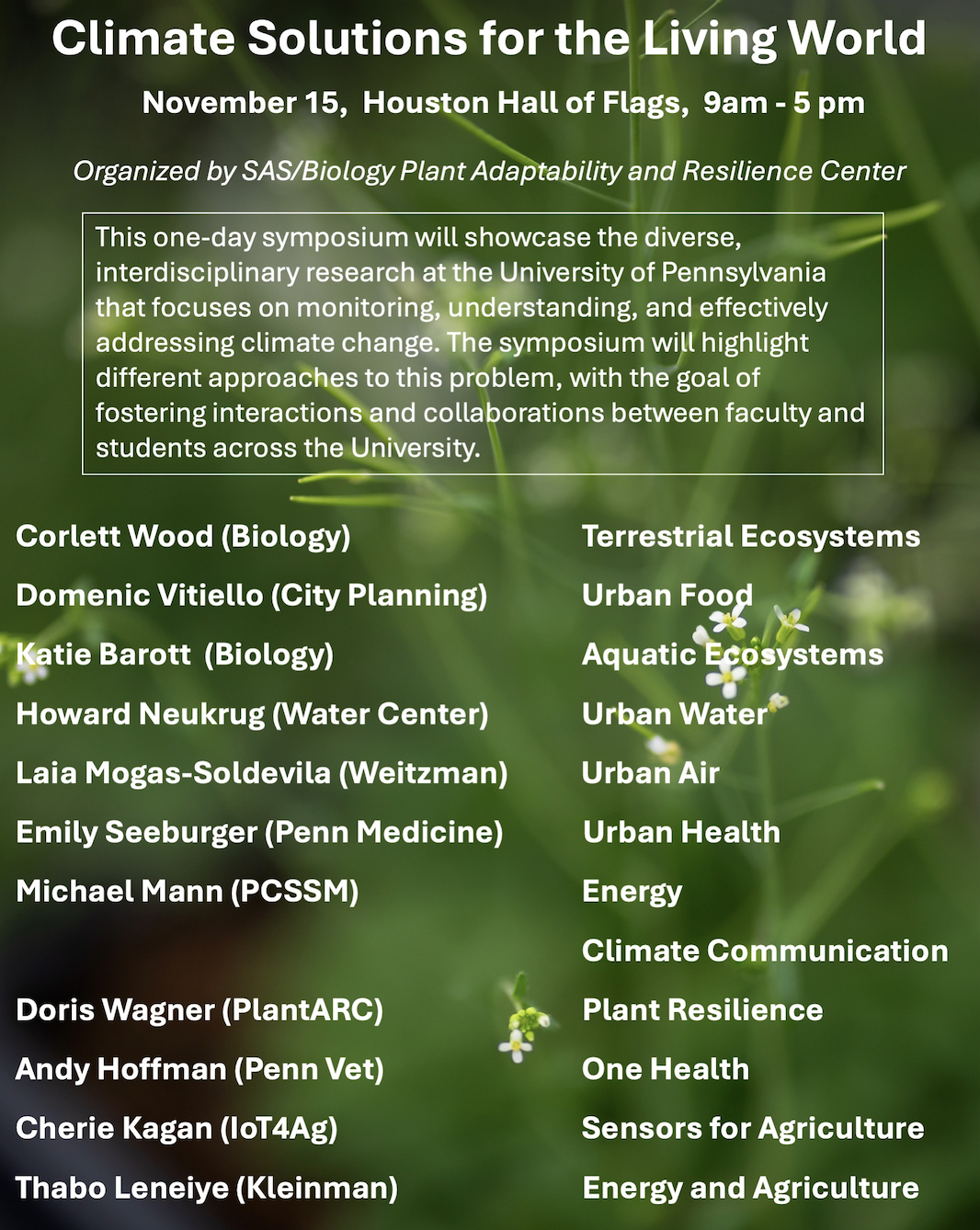Join us for our symposium Climate Solutions for the Living World
Organized by the SAS/Biology Plant Adaptability and Resilience Center.
Houston Hall, Hall of Flags, November 15th 9 – 5 followed by a reception
This one-day symposium will showcase the diverse and interdisciplinary approaches at the University of Pennsylvania that focus on monitoring, understanding and effectively addressing changing climates. The Symposium aims to highlight the inter-connectedness of topics being discussed and will foster interactions and collaborations towards addressing common objectives. In four sessions, experts from five schools will discuss (i) climate change effects on aquatic and terrestrial ecosystems; (ii) challenges of urbanization and climate on water, food, air and health; (iii) energy, climate communication and the role of plants in sustaining life on earth and (iv) precision regenerative agriculture and links to energy. Dr. Michael Mann will be giving the keynote address.
Register to participate
Talk Abstract: For the vast majority of its 4.54 billion years, Earth has proven it can manage just fine without human beings. Then came the first proto-humans, who emerged just a little more than 2 million years ago—a fleeting moment in geological time. What is it that made this benevolent moment of ours possible? Ironically, it’s the very same thing that now threatens us—climate change. The drying of the tropics during the Pleistocene period created a niche for early hominids, who could hunt prey as forests gave way to savannahs in the African tropics. The sudden cooling episode known as the “Younger Dryas” 13,000 years ago, which occurred just as Earth was thawing out of the last Ice Age, spurred the development of agriculture in the fertile crescent. The “Little Ice Age” cooling of the 16th-19th centuries led to famines and pestilence for much of Europe, yet it was a boon for the Dutch, who were able to take advantage of stronger winds to shorten their ocean voyages. The conditions that allowed humans to live on this earth are fragile, incredibly so. Climate variability has at times created new niches that humans or their ancestors could potentially exploit, and challenges that at times have spurred innovation. But there’s a relatively narrow envelope of climate variability within which human civilization remains viable. And our survival depends on conditions remaining within that range. In this talk, I will arm readers with the knowledge necessary to appreciate the gravity of the unfolding climate crisis, while emboldening them—and others–to act before it truly does become too late.



